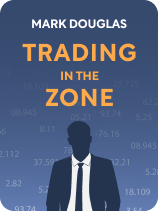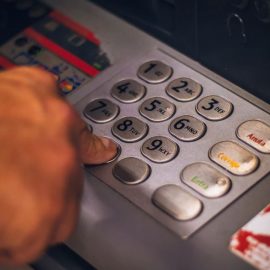

This article is an excerpt from the Shortform book guide to "Trading in the Zone" by Mark Douglas. Shortform has the world's best summaries and analyses of books you should be reading.
Like this article? Sign up for a free trial here .
Why do most people give up trading? Is trading really that hard as it’s made out to be? What does it take to become a successful trader?
One of the keys to achieving success in trading is simply a matter of trading a lot. Provided you have a sound strategy, over time you’ll become more adept at reading market patterns and predicting what happens next with ever-increasing accuracy.
Here’s how to achieve success in trading.
Succeed at Trading
Douglas asserts that achieving success in trading is a matter of conducting a sufficient volume of trades, as your odds of winning improve over a large number of trades. Here’s how this works: Each trade has an edge, which is simply a sign that a price is more likely to move in one direction. Through your market analysis, you can identify a favorable edge, an approach that you think will bring you success and profits. There’s never a guarantee that this edge will turn out to be profitable—as we’ve seen, the randomness of the market means that things can go wrong.
However, if you’ve indeed picked a favorable edge based on market patterns, you can guarantee that you’ll see success consistently over a large period of time. You might not win every time due to the unpredictability of the market, but you’ll win a lot of the time if you stick with it for long enough (and if you have, in fact, picked a profitable edge).
According to Douglas, this is similar to casino operations: even if the house occasionally loses, they know that over time, they’ll eventually win consistently enough to make a profit. This confidence isn’t based on hope, luck, or pure staying power. Rather, casinos impose rules on gamblers that give casinos a roughly 4.5% edge over players. Knowing this, casinos don’t panic each time an individual gambler wins big; they simply keep welcoming players to the games, knowing that the more games people play, the higher the casinos’ profits will be in the end.
Is Investing the Same as Gambling?
Douglas uses the example of casinos to illustrate the effect of probabilities (and how profitable patterns play out over time), but he doesn’t comment on the vastly different levels of risk involved in gambling versus trading. It’s important for you to understand this variance in risk so you can appreciate (and capitalize on) the way investing pays off in the long term while gambling does not. Financial experts highlight the following points of similarity and difference:
Similarities:
- Investing and gambling both involve risking money with the hope of future profit.
- A key principle in both activities is to minimize risk while maximizing reward.
- Both investors and gamblers must choose how much money they want to put “in play.”
Differences:
- Gamblers have fewer ways to mitigate losses than investors do. For example, investors can spread their capital across different types of assets to help minimize losses. In pure gambling, there are no loss mitigation strategies.
- Investors have more sources of relevant information than gamblers do. While investors conduct market analyses, casino gamblers playing cards are limited to studying the mannerisms and betting patterns of their opponents.
- Gambling is a short-lived, time-bound event, meaning gamblers either win or lose once play is over. Investing can last several years, and investors can profit over the long-term as long as they hold onto their investments.
- Over time, the odds will be in your favor as an investor and not in your favor as a gambler.
That last difference is arguably the most important. To clarify, each time you play at a casino, there’s a statistical probability against you winning: The more you play, the more money you are likely to lose. In contrast—and as we’ve already mentioned—when you invest, your odds of winning increase over a large number of trades. As Douglas states, this is how you can take advantage of probabilities to win consistently on the market—as long as your edge is real and you adopt a long-term mindset.

———End of Preview———
Like what you just read? Read the rest of the world's best book summary and analysis of Mark Douglas's "Trading in the Zone" at Shortform .
Here's what you'll find in our full Trading in the Zone summary :
- The role mindset plays in stock trading
- The critical importance of embracing risk
- How to become a confident, consistent winner







The key to success in trading is a combination of several factors, all working in tandem.